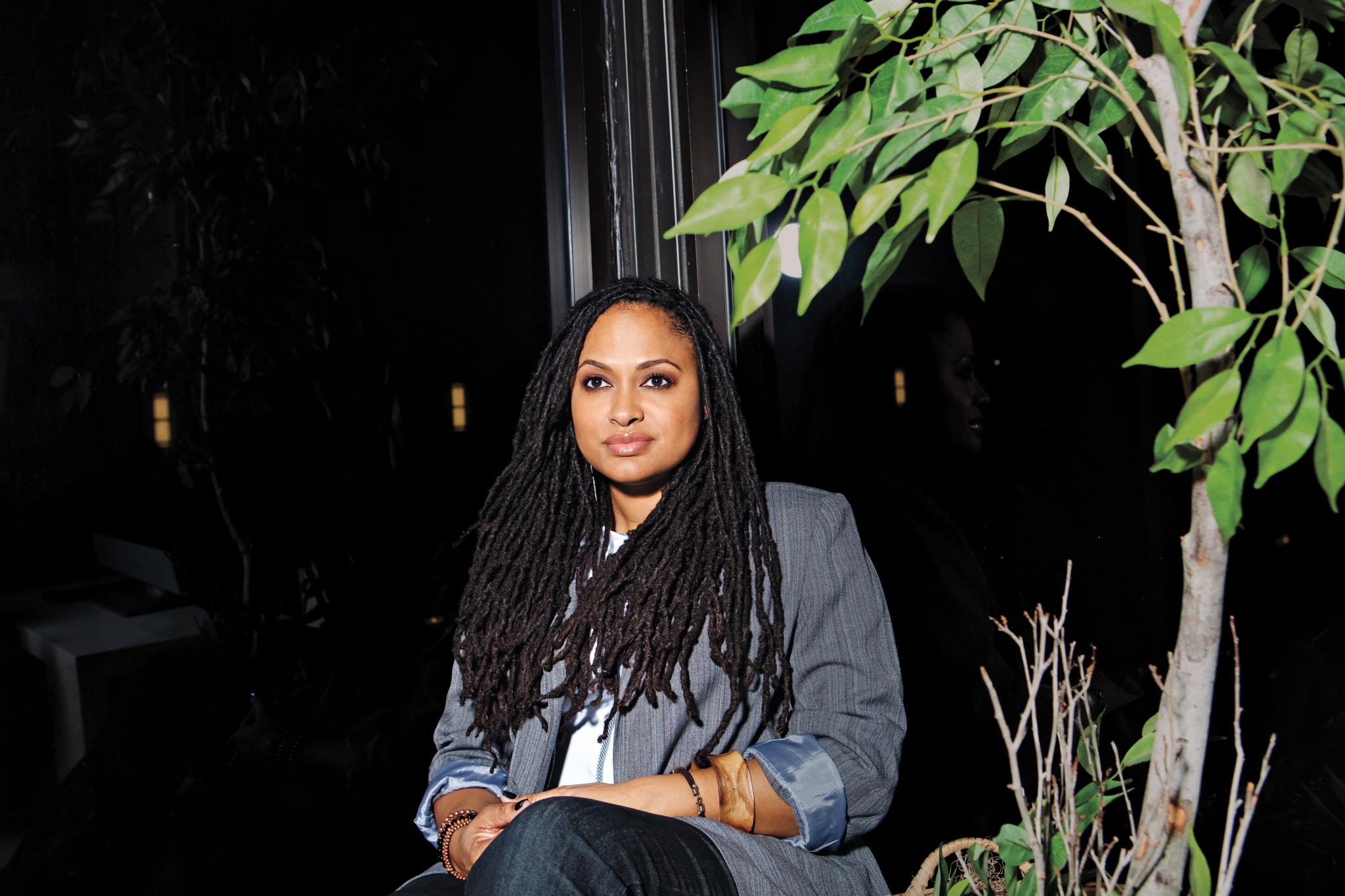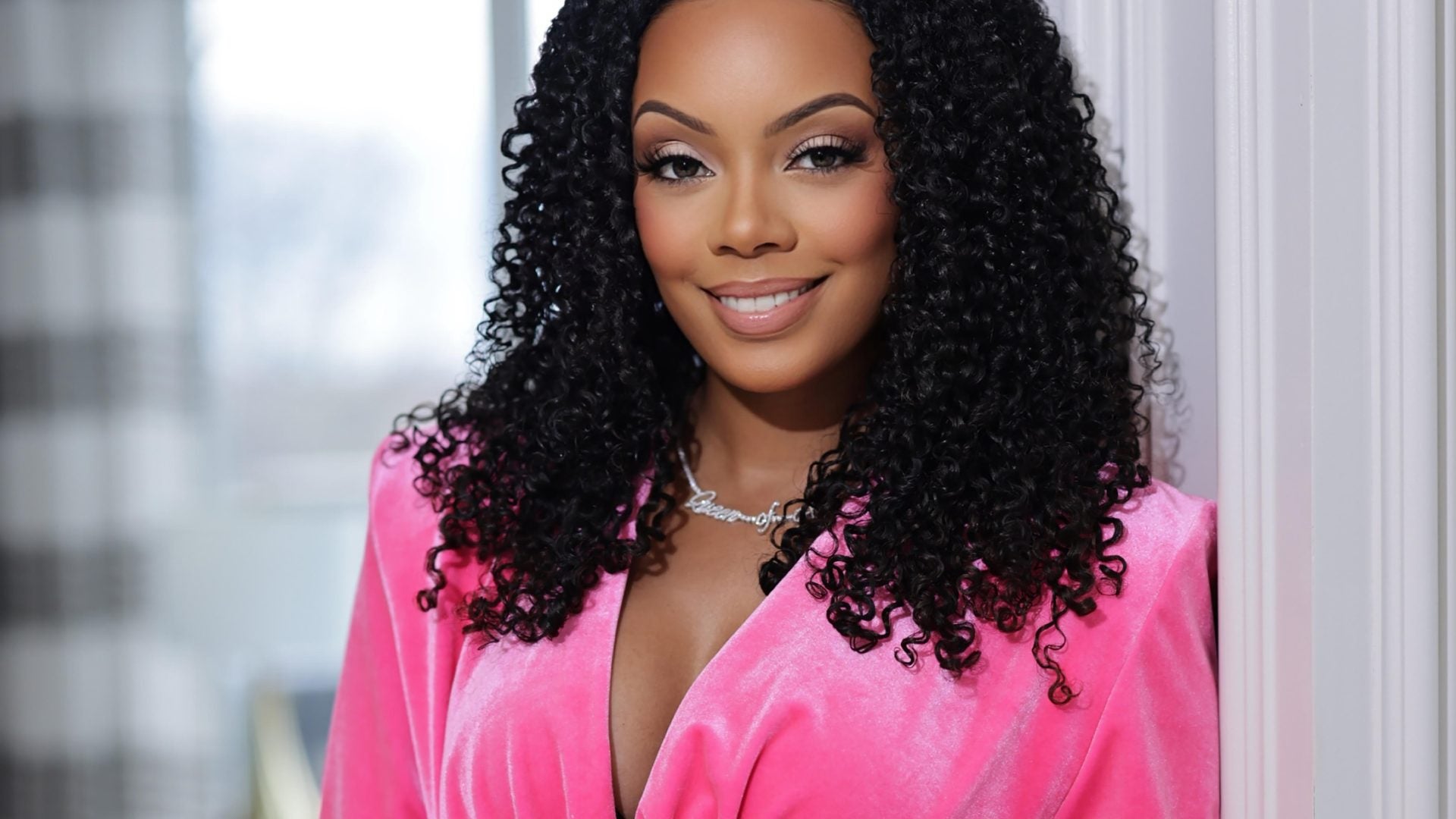
An audience of congressmen sits stone-faced, rapt as President Lyndon B. Johnson stretches his arms across the lectern and calls America to task for denying voting rights to Blacks. “There is no Negro problem,” Johnson says slowly, deliberately. “There is no southern problem. There is no northern problem. There is only an American problem.” During the filming of this scene from the upcoming ” Oprah Winfrey-produced Selma, it feels like 1965 again: intense and eerie, scary even, in this space, in this moment, in which a crush of White men is considering the federal response to one of the most devastating moments in civil rights history, Bloody Sunday. It isn’t until director Ava DuVernay yells, “Cut!” and Strolls over to Johnson—or, rather, actor Tom Wilkinson—to guide him through another take of Johnson’s historic “We Shall Overcome” speech that the tension in the air loosens.
It is almost too rich to consider: DuVernay, who just a few short years ago became the first Black woman to win best director at the Sundance Film Festival, is holding court over a sea of White men in the hallowed halls of the Georgia State Capitol in Atlanta, where a little less than 50 years ago Dr. Martin Luther King, Jr., fought for her right to…be.
DuVernay’s film, based on the epic 1965 Selma-to-Montgomery marches that paved the way for the landmark Voting Rights Act, stars David Oyelowo, who portrays King alongside Carmen Ejogo as Coretta Scott King, Common as organizer James Bevel and Tessa Thompson as student coordinator Diane Nash. For Oyelowo, DuVernay’s direction is remarkable because she’s turning a political drama into a deeply human story about injustice and “a man who felt burdened, who felt unsure, who felt guilty about putting people in danger’s way knowing that he wanted to elicit a reaction from the general public.
“To me, storytelling, whether you’re in a tin shack in South Africa or you’re getting ready to do a two-million-dollar movie in Hollywood…is about the human spirit,” Oyelowo said during a visit to the Atlanta set last June. “That, you cannot put a price on. That’s the thing she has a connection to.”
Indeed Selma goes there, wringing out the danger and intensity of the day by re-creating the infamous attack by state troopers and other White locals on about 600 Black demonstrators marching across Alabama’s Edmund Pettus Bridge and exploring, even, the intimate relationship between the Kings, including alleged infidelity and other problems the couple faced as man and wife.
Ejogo applauds the approach, saying it makes the Civil Rights Movement icons “even more worthy of the praise that you heap upon them when you appreciate the fact that they are human like the rest of us.
“They’re not supermen,” continues Ejogo, who, in full costume, cuts an uncanny resemblance to Scott King save for her British accent. “These are regular guys and girls who were doing astonishing things despite their human frailties. And that makes them even more impressive, actually.”
This article originally appeared in the January 2015 issue of ESSENCE magazine, on newstands now!





